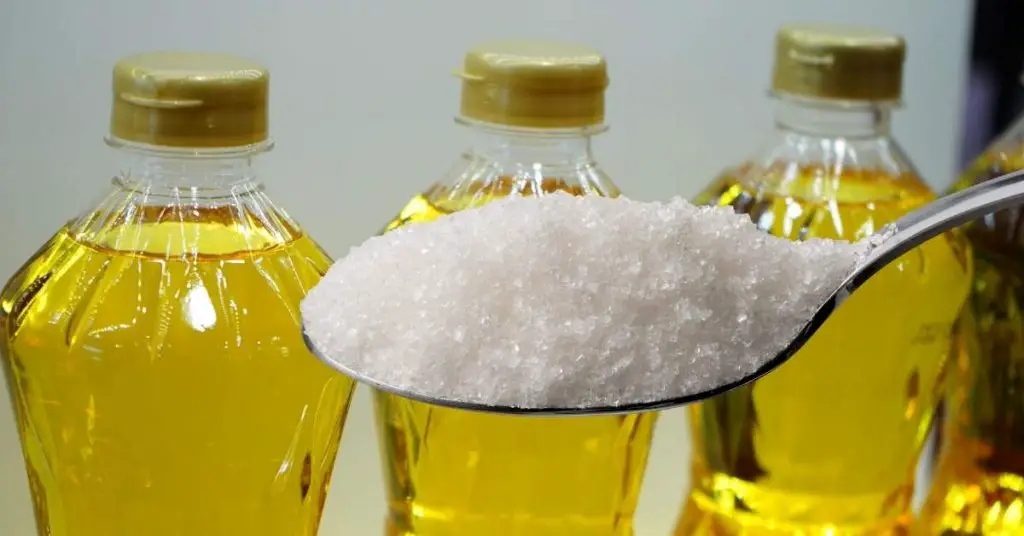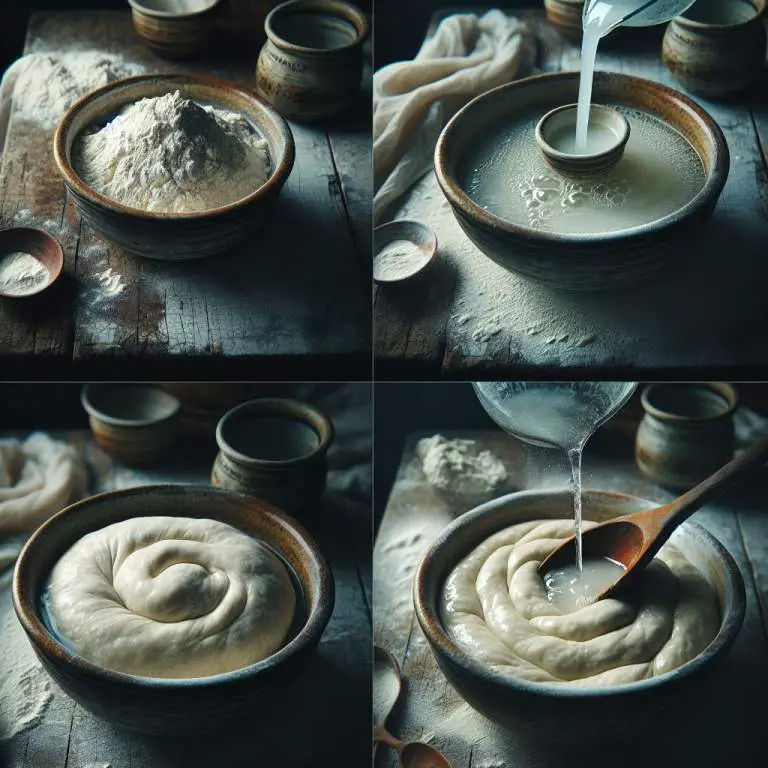Should Pizza Dough Have Oil And Sugar? Yes – Here’s Why
Traditionally, pizza dough has only four ingredients – flour, water, yeast and salt. However, lots of recipes call for adding sugar and oil as well. So, is using sugar and oil just a matter of personal preference, and why should they be added in at all?
Yes, sugar and oil should be added to pizza dough that is intended for cooking at home. Sugar and oil help the crust to brown while it bakes at the lower temperatures common in home ovens. Much of this is the result of caramelization and the Maillard reaction.
If you’re confused by this, keep reading. I’m going to talk about why sugar and oil are so useful when baking pizza in a home oven and then compare and contrast that to how a professional pizza oven works for the sake of illustrating the point.
You might also like: Easy Homemade Pizza Crust Recipe

Sugar Helps Pizza Crust Brown In A Home Oven
Sugar has several functions when it comes to preparing and baking pizza dough, especially in a home oven.
When sugar is exposed to high heat it caramelizes. If you’ve ever simmered sugar or maple syrup on a frying pan you’ve probably seen how it turns into a dark brown color. The same thing happens when you bake or fry fruit as well due to their the high sugar content. All of this is the result of a chemical reaction called caramelization.
There is another similar but distinct chemical process that happens when sugar is exposed to high heat called the Maillard reaction. This occurs when sugars and proteins interact while baking and it causes browning as well. This is the same chemical reaction that causes browning on seared meat and fried foods.
Why is this important? Under normal circumstances pizza crust will not brown properly in a home oven. This is because the heat isn’t hot enough to to instantly singe the edges of the crust like it would in a professional pizza oven. Adding sugar to the pizza dough allows for browning and crisping to occur very quickly under lower heat and helps to avoid a pale crust.
But this isn’t to say that browning won’t ever occur without sugar at lower temperatures. More accurately, the browning will happen but it will take much too long. In fact, by the time you get any browning without using sugar, the crust will be completely dried out and your toppings will be burnt. This doesn’t make for a very appetizing pizza.

Related Post: Why Your Pizza Dough Isn’t Rising
Oil Makes Pizza Dough More Pliable And Adds Crisp To The Crust
Adding oil to pizza dough serves several purposes. But mostly, it tenderizes the dough and provides for some extra browning and crisping of the crust.
Many people add olive oil to pizza dough simply because it makes the dough easier to work with. The reason this works is because the oil inhibits the formation of gluten as the dough is kneaded. This helps the dough to stay relaxed and prevents gluten from forming bonds that are too tight to work with.
But be careful not to add too much oil or it will prevent gluten bonds from forming at all. When this happens, the dough will remain sloppy and wet no matter how long you knead it.
Another reason to add oil to pizza dough is that it helps with the browning of the crust. This is something I don’t see mentioned much online but I’ve had plenty of experience with it.
Just as you might coat a piece of meat or bread in oil to get a nice crispy and brown finish, the same is true for pizza dough. If you brush your pizza crust with oil just before it’s finished baking, it will fry the very outer layer of dough to add color and crispness. Alternatively, adding oil to the dough recipe itself will have a similar but more subtle effect.
Lots of people brush their crust with oil for finishing but I prefer to add the oil to the pizza dough recipe itself. I find that coating the outside of the crust with oil makes it too crunchy. Adding the oil to the dough itself adds a very delicate crisping to the crust as well as making the dough easier to handle.
Wood-Fired Ovens Are Hot Enough To Brown Without Sugar & Oil
Traditional Neapolitan pizza is baked in a super-hot 900F degree oven. This is way hotter than anything that can be done in a normal home oven and it’s the reason why the recipes for traditional and home-style pizza differ so much.
Take sugar, for example. In a home oven sugar is necessary for making the crust color and brown correctly. It’s also useful for adding caramelization to the crust to give it a bit of a crisp. But in a professional pizza oven, sugar isn’t necessary for this.
At extreme temperatures, the pizza bakes much much faster – sometimes in as little as 90 seconds. This means the crust gets the “leopard spotting” that Neapolitan pizza is known for without sucking all the moisture out of the crust. These extreme temperatures are also able to ever so slightly caramelize the natural sugars present in the flour before it burns (like it would in a normal oven).
Similarly, oil can help to keep a baked pizza crust moist. In a high-heat professional pizza oven, this isn’t an issue because the pizza bakes so quickly. But in a home oven at roughly half the temperature, a little bit of oil can help to keep everything moist during the longer cooking time.

NYC Pizza Often Uses Oil And Sugar
While traditional Neapolitan style pizza doesn’t use sugar and oil in the recipe, New York City style pizza usually does.
This is the case for a couple of reasons. One, Americans have different taste sensibilities than Italians when it comes to pizza. Americans generally prefer stronger tastes, and the added sugar and oil definitely accomplishes this.
By contrast (personally) I prefer to keep the sugar and oil I add to my pizza dough to a minimum so that it serves the function of aiding the baking process but doesn’t affect the flavor too much.
Another important factor to why New Yorkers use sugar and oil while Italians don’t is temperature. Italian pizza ovens typically bake at the highest temperatures possible – sometimes nearing 1000F degrees. New York City pizza ovens are generally powered by gas or electric and are only set to temperatures between 450F and 700F, depending on the pizzeria. The extra sugar and oil helps these pizzas brown for the same reasons why I use it for my home-oven recipes.
Final Thoughts
Ultimately whether you use sugar and oil in your pizza dough is a matter of personal taste, but there are several reasons why I recommend it if you’re baking your pizza in a home oven.
Sugar allows for caramelization and browning of the crust. It can also affect the flavor of the crust if you use enough of it, too. Sugar is generally preferred in situations where you’re baking the pizza below 700F degrees, and especially at below 550F which is the max temperature for most home ovens.
Oil mainly affects the texture and workability of the dough, but it also provides for some nice crisping and browning of the crust as well. It’s not necessary in a wood-fired oven but for the home oven pizza maker is has a lot of advantages.
My advice is to use both sugar and oil in your pizza dough sparingly. I only use 1 or 2 glugs of oil per batch of pizza dough. And for sugar, I prefer to use a spoonful of raw local honey. Both really enhance the flavor and texture of the finished pizza crust.
If you need a recipe that incorporates both of these ingredients, be sure to check out my delicious and easy no-knead pizza dough recipe.






